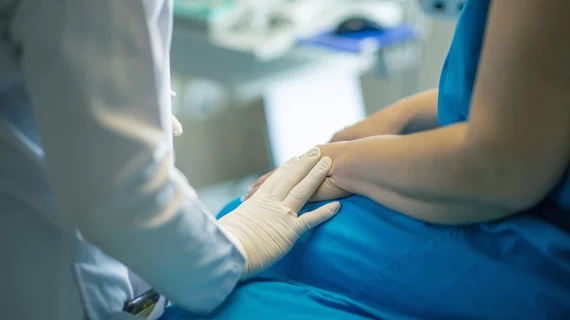CMS proposes 2.8% rate increase for inpatient payments in 2024
The Centers for Medicare and Medicaid Services (CMS) released a proposed rule for inpatient hospital services that includes a 2.8% payment bump, worth $3.3 billion.
The 2024 Medicare Hospital Inpatient Prospective Payment System (IPPS) and Long-Term Care Hospital Prospective Payment System (LTCH PPS) proposed rule updated Medicare fee-for-service payment rates and policies for inpatient hospitals and long-term care hospitals for 2024.
The IPPS program governs what CMS pays facilities participating in the Hospital Inpatient Quality Reporting (IQR) program for inpatient hospital stays, while LTCHs are paid under the LTCH PPS program. The two programs set base payments based on patient diagnosis, services or treatments provided and severity of illness. CMS updates payment rates for IPPS hospitals annually, accounting for changes in prices of goods and services used by hospitals in treating Medicare patients. To do so, CMS uses an index dubbed the hospital “market basket.”
Under the proposed rule, the increase in operating payment rates for general acute care hospitals paid under the IPPS for 2024 will be 2.8%. The figure represents a projected 3% hospital market basket increase for hospitals, minus 0.2% for product point adjustment. The 2.8% payment increase is valued at roughly $3.3 billion. CMS also projected Medicare disproportionate share hospital (DSH) payments and Medicare uncompensated care payments combined will decrease in 2024 by $115 million.
The IPPS includes other payment adjustments, including payment reductions for excess readmissions, 1% payment reduction for the worst-performing quartile under the Hospital Acquired Condition (HAC) Reduction Program and upward and downward adjustments under the Hospital Value-Based Purchasing (VBP) Program.
For LTCH PPS, CMS will increase the standard payment rate 2.5%, while the LTCH PPS payments for discharges will decrease 2.5% or $59 million, “due primarily to a projected 4.7% decrease in high-cost outlier payments as a percentage of total LTCH PPS standard Federal payment rate payments,” CMS said.
“CMS is helping to build a resilient health care system that promotes good outcomes, patient safety, equity, and accessibility for everyone,” CMS Administrator Chiquita Brooks-LaSure said in a statement. “This proposed rule reflects our person-centric approach to better measure healthcare quality and safety in hospitals to reduce preventable harm and our commitment to ensure that people with Medicare in rural and underserved areas have improved access to high-quality healthcare.”
The proposed rule also includes health equity priorities, such as adjustments in the Hospital Value-Based Purchasing Program that would incentivize hospitals to care for high proportions of underserved individuals. The adjustments would also recognize the higher costs to hospitals that provide care to people experiencing homelessness when hospitals report social determinants of health codes on claims.
CMS is also proposing that rural emergency hospitals be designated graduate medical education training sites, enabling more medical students to train in rural areas. The agency is seeking comment on these proposals.

